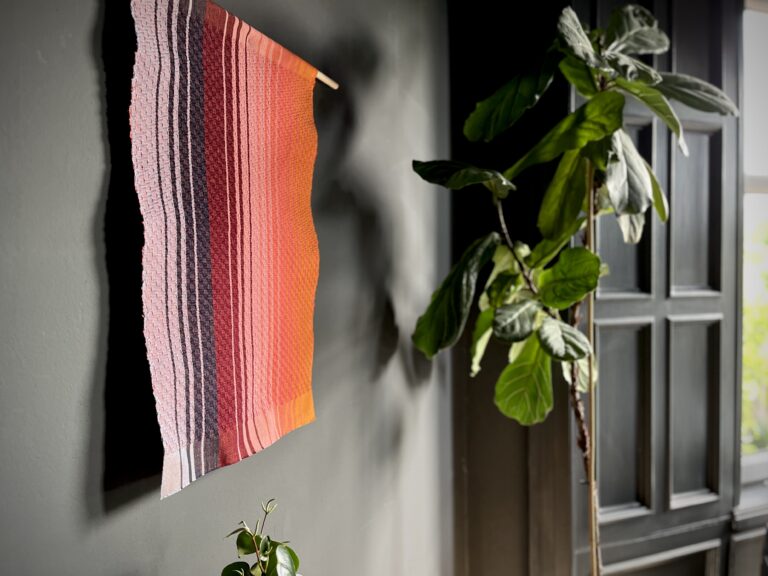Programme Overview
The Textile Design programme prepares students for the future, whether they want to pursue careers in fashion, interiors, product, automotive, film and television, material innovation, colour, trend or other creative areas. Students learn from textile traditions whilst looking to challenge the discipline. We offer the opportunity to study weave, knit, print and embroidery before specialisation. Responsible design continues to evolve and inform approaches, practices and outcomes. The programme aims to create assured and specialist textile design graduates with individual and creative identities prepared for employment, self-employment and postgraduate study. The work of our graduates demonstrates uniqueness and diversity towards individual interests and creative aspirations. All GSA degree programmes are validated by the University of Glasgow.



















